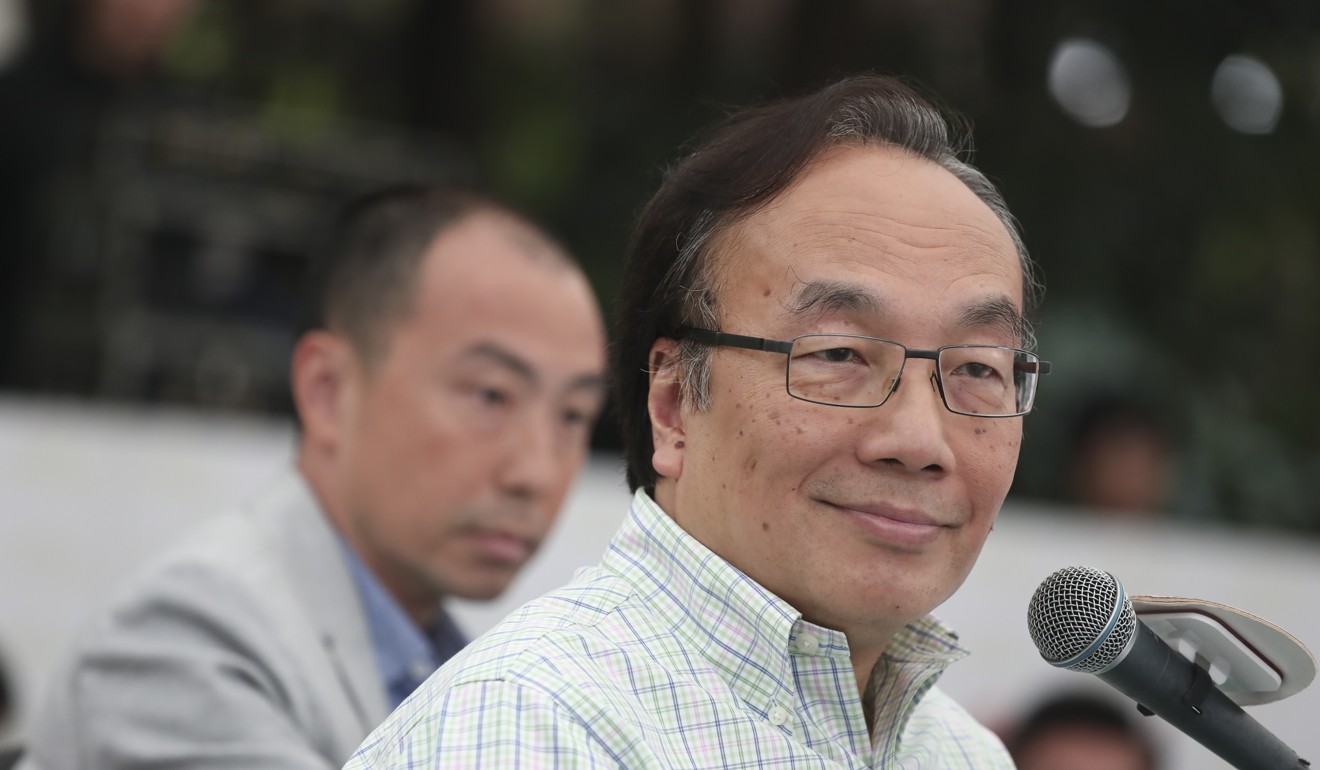
'Pass national security law and Beijing will be more confident granting Hong Kong democracy'
Government adviser and former legislator Lau Ping-cheung claims Beijing would be more open to allowing city to elect leader by popular ballot if security law were passed
An adviser to the Hong Kong government has argued the city should proceed with introducing controversial national security legislation and not resist it as China gains international stature.
Li’s remarks have triggered a debate on how Hong Kong should enact Article 23 of the Basic Law, which obliges Hong Kong to enact laws against treason, subversion and theft of state secrets.
Government ‘should appoint legal experts to map out controversial national security law in Hong Kong’
The issue has been shelved and successive administrations have been wary about reviving it after a public backlash during the last attempt to introduce such legislation in 2003, when 500,000 people took to the streets to oppose it.
Speaking on RTHK’s programme City Forum, Civic Party chairman Alan Leong Kah-kit, said it was now even more unlikely the legislative effort would succeed because Hongkongers’ mistrust of Beijing had deepened.

But Lau, a member of the Basic Law Promotion Steering Committee, countered that now would be a better time than 14 years ago.
“In 2003, Beijing was worried that Hong Kong would become a base to oppose the Communist Party … But in recent years, international mainstream media have recognised the party’s leadership as a key reason behind China’s success,” he said.
“We should enact the legislation as soon as possible, because we would not like to see the central government taking action.”
Lau did not elaborate on the point, but pro-establishment politicians have warned that Beijing could impose the mainland’s national security law on Hong Kong if it failed to implement it locally.
The pan-democrats also argued that Article 23 legislation must not be enacted before a democratic political system is introduced in the city.
Beijing could take action if Hong Kong fails to enact national security law, mainland adviser warns
To that, Lau said: “Without the legislation, the central government would be even more uneasy about allowing direct election [of the city’s leader].”
Hong Kong’s top officials promised to enact the national security legislation when there was “a suitable environment”. But pro-establishment legal experts countered that the government should appoint legal advisers to study ways to proceed, such as whether the legislation could be enacted in stages – to prohibit acts of treason and subversion first, before moving on to others.
“The government should start preparing for it, and let the people understand all the details of the legislation,” he said.
To minimise public opposition, Lau said, it would be more important to engage people on the details of the law rather than splitting the task in stages.
“Even if you enact Article 23 legislation in stages, there will still be quarrels,” the former lawmaker added. “I think it is better to do it in one go.”

